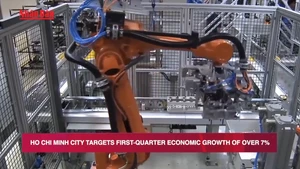Public understanding and trust
In implementing Resolution No. 68-NQ/TW of the Politburo, Resolution No. 198/2025/QH15 of the National Assembly on special mechanisms and policies to develop the private economy, and Resolution No. 139/NQ-CP of the Government on the implementation of Resolution 198/2025/QH15, Da Nang City will review and issue a plan to develop the private economy. This plan focuses on identifying tasks to meet the goal of 2 million businesses nationwide by 2030. At the same time, Da Nang will introduce its own policies to robustly promote the private sector.
According to economist Dr Nguyen Dinh Cung, the private sector was officially recognised in the documents of the 6th National Party Congress (December 1986). However, household businesses had existed long before that, essentially operating as small-scale production units, including families and individuals engaged in manual production or service provision as part of a family economy. This is a distinctive feature of the Vietnamese economy.
Following the Doi Moi (renewal) period, household businesses became increasingly popular due to their simple procedures and low costs. Over the decades, the individual economic sector has taken various forms, ranging from street vendors, small convenience stalls, and barbershops to larger household businesses such as market kiosks, restaurants, and hotels.
Some households and individuals engage in small-scale business to supplement their income, while others have scaled up and operate in regulated industries without adhering to corporate standards. Consequently, the legal environment for enterprises and household businesses remains vastly different. Many enterprise regulations cannot be applied to the individual economic sector due to limitations in skills and costs.
Dr Nguyen Dinh Cung stated that while tax management reform is necessary to increase transparency in production and business activities and ensure fairness among economic sectors, it must follow a suitable roadmap. This means harmonising economic, cultural, and historical factors related to the development of the household business sector. It is essential to streamline administrative procedures for enterprises, especially micro-enterprises. When the distinction between household businesses and enterprises becomes less pronounced, more households will be encouraged to transition.
“We need to focus on communicating to ensure people understand and trust the policies of the Party and the State, and believe in the Government’s support for private sector development. At the same time, this transition will require time, as household businesses have a long historical background. The aim is to create a transparent and fair business environment, not to increase state revenue. People will voluntarily become enterprises when they see more benefits and lower risks,” Dr Nguyen Dinh Cung emphasised.
Recommendations: No immediate penalties
Based on the implementation of Decree No. 70/ND-CP regulating e-invoices for households and individual businesses, economist Pham Minh Thao suggested that household businesses should be given time to familiarise themselves with the regulations, develop the necessary skills, and prepare for the cost of acquiring relevant equipment.
This is crucial because most small-scale household businesses, such as fruit, vegetable and seafood vendors in traditional markets, are not yet able to issue invoices at the point of sale. This period allows tax authorities to provide information and guidance to taxpayers during the transition from fixed tax to self-declaration and the use of e-invoices. Only households that deliberately violate regulations afterwards should be penalised or face tax recovery.
New tax policies must be simple, easy to understand, and easy to implement. Nguyen Van Than, Chairman of the Viet Nam Association of Small and Medium Enterprises, proposed that the Government provide a free accounting application for household businesses to self-declare and calculate taxes. This solution would help taxpayers manage their business more effectively, ensure transparency, and reduce the workload for tax authorities.
Experts believe that to alleviate the concerns of households and individual businesses transitioning to e-invoices, authorities should offer hands-on, personalised guidance for each household or groups of businesses in the same sector and location. Since tax departments do not have sufficient staff, they should collaborate with tax agents to provide on-site support to clients.
Based on this reality, the Tax Department has issued an official request to e-invoice solution providers to coordinate efforts during the high-priority implementation period in June and July 2025, establishing a rapid-response technical support channel to immediately address any technical issues arising in the use of e-invoices.
According to Dr Nguyen Quoc Viet from the University of Economics, Viet Nam National University, Ha Noi, as of the end of 2024, there were approximately 5 million household businesses nationwide, of which 3.6 million had tax identification numbers but contributed only about 4.5% of the total VAT and personal income tax revenue. This highlights the lack of fairness in tax obligations between enterprises and household or individual businesses. Continuing with fixed tax collection will not eliminate the "grey zone" in the informal economy.
However, policymakers must remain flexible when enforcing new policies. Overly bureaucratic implementation should be avoided, as this shift marks a turning point in tax administration and significantly affects millions of household businesses. New regulations must be feasible, aligned with the capabilities of household businesses, and ensure that the benefits outweigh the compliance costs.
















